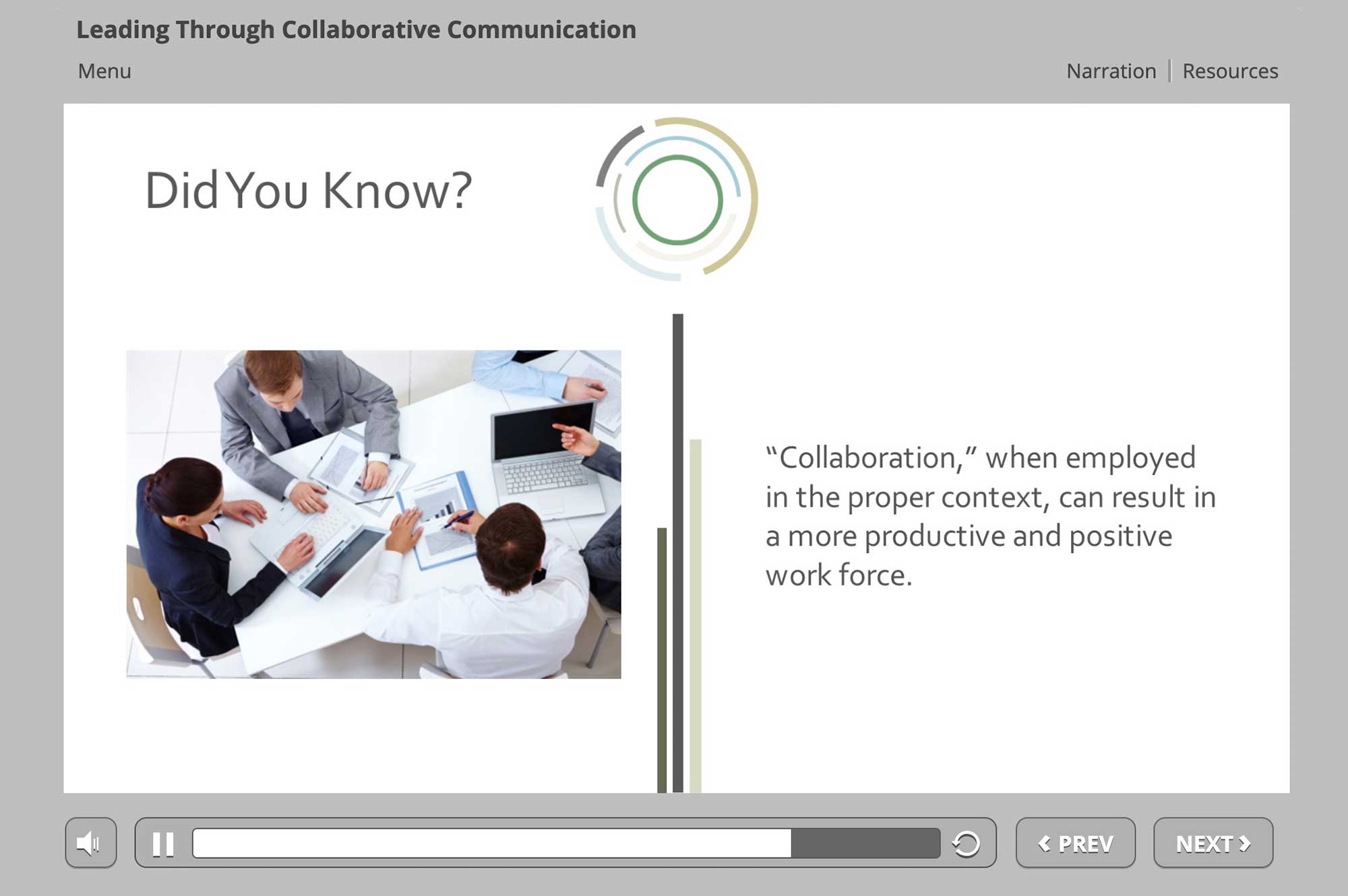The purpose of this course is to guide instructors, supervisors and other staff in leadership roles on how to provide effective feedback in order to promote the ongoing development of facilitators.
In this course, participants will learn how to implement and use the Facilitation Feedback Tool – Learning and Development Log, a form designed to support staff in their journey toward skilled facilitation.
The course reviews what effective feedback is and provides guidelines on how it should be delivered. It also discusses the importance of coaching and mentorship in supporting staff who may be struggling in their new role as facilitators.
Learning Objectives
- Describe the role of the facilitator
- Identify the different areas integral to effective facilitation
- Assess the facilitation skills of newly trained, and experienced facilitators
- Describe uses for the Facilitation Feedback Tool (FFT)
- Implement and use the FFT as well as interpret a completed FFT
- Identify areas of strength and acknowledge accomplishments
- Identify ideas for growth and the importance of strengths based feedback
- Describe ways to support a facilitator based on the outcome of a completed FFT
- Identify options for facilitators to improve their facilitation skills
- Describe ways to coach and/or mentor a facilitator to improve their facilitation skills
- Complete an FFT while observing a facilitator’s presentation
- Provide effective feedback to newly trained and experienced facilitators
If you have completed this course, please provide feedback:





